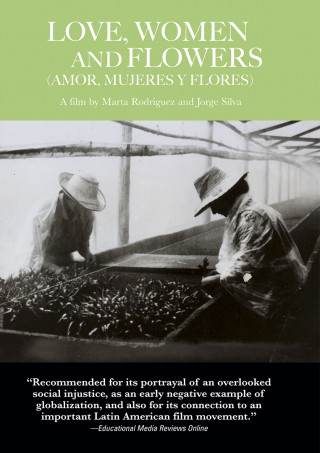Marta Rodriguez
Marta Rodríguez (born 1933) has never been merely an anthropologist or merely a documentary filmmaker. From her first film Chircales (the Brickmakers), to her present work, Rodríguez has always shown herself to be a politically committed, independent anthropological filmmaker who uses documentary to analyze the living and working conditions and the world view of peasants, native peoples, and workers in her native Colombia
All of Rodríguez' documentaries have been made in collaboration with her spouse, Jorge Silva, who was best known as a cinematographer, a career he began after having worked as a still photographer. He died in 1987 after twenty years of distinguished work as a committed documentary filmmaker.
A brief descriptive Rodríguez-Silva filmography follows. Chircales examines the hellish life of a family of poorly paid, non-unionized brickmakers on the outskirts of Bogota. Planas: Testimonio de un etnocide (Plans: Testimony about Ethnocide, 1970) is an example of denunciatory cinema. The film documents the genocide of an indigenous group and explores the economic and social causes of the slaughter. In Campesinos (Peasants, 1974-76), the filmmakers analyze the violence and exploitation long visited on Colombia's rural population. Nuestra Voz de Tierra, Memoria y Futuro (Our Voice of Land, Memory, and Future, 1973-80) uses fictional elements to explore the magic, myths, and legends of the Indian worldview. Amor, Mujeres y Flores (Love, Women and Flowers1984-89) exposes the dangerous conditions for women workers in Colombia's booming cut-flower trade. Nacer de Nuevo (To Be Born, 1986-87) offers a moving portrait of two indigent seventy-year olds who must somehow get on with their lives after having lost everything in the landslides and floods triggered by the eruption of the Ruiz Volcano in 1985. (8/14)
Available Title(s):

Love, Women and Flowers
A film by Marta Rodriguez, 1988, 58 min, Color
At any time of year in the U.S., carnations of every color are plentiful and cheap – but the ready availability of these beautiful flowers comes at a global price. Thousands of miles away from the bright displays in U.S. stores, hazardous labor conditions endanger the 90,000 women who work in Colombia’s flower industry. According…
Read More